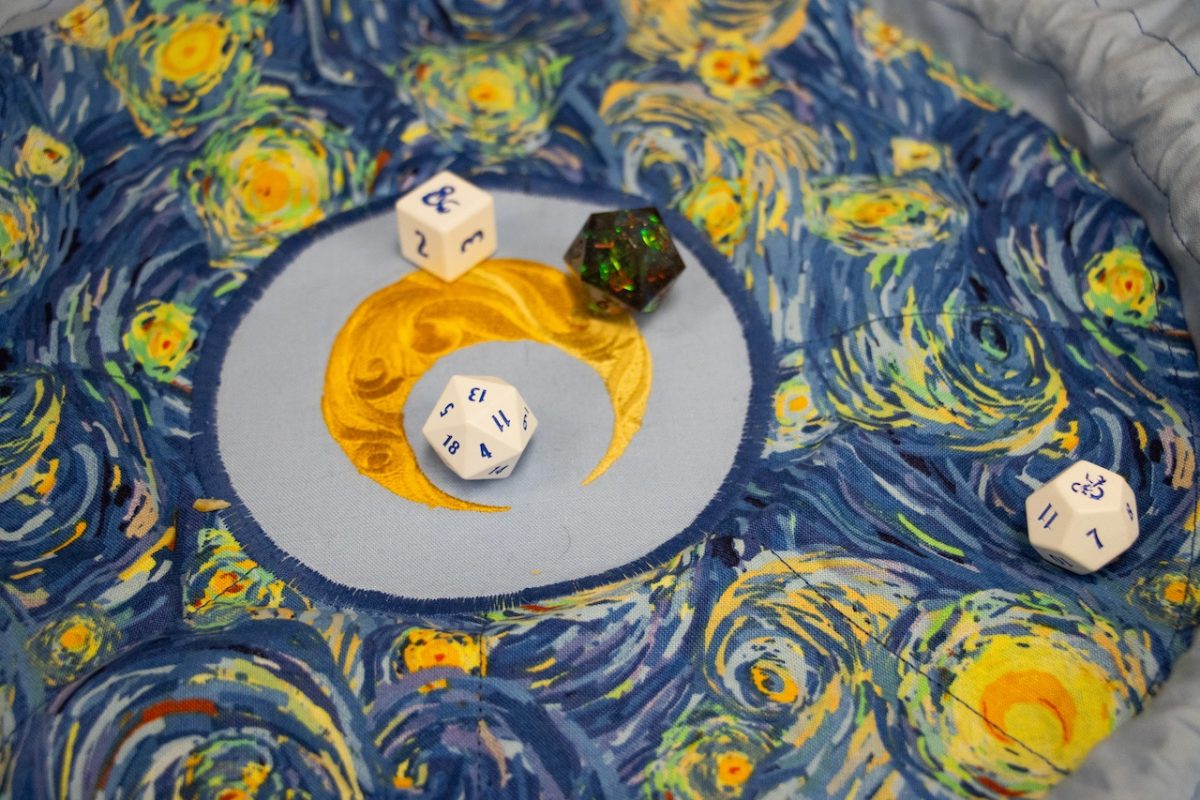The NE Neurodivergent Club and the Gaming Club at the TCC NE campus is working to disprove misconceptions about Dungeons and Dragons.
Since 2023, the two clubs came together to form a crash course for those curious about table tabletop role playing games, with Dungeons and Dragons as the focus. Players — new and old – were invited to come meet others interested in tabletop roleplaying games, learn the mechanics, create new player characters and start a new campaign.
Since the start of the pandemic in 2020, the National Institute of Health reported a steady increase in individualism and social isolation in studied societies. Participating in games and immersing oneself in roleplaying is a creative way for people to come together and develop intrapersonal skills between people that can be carried in to and used in everyday life.
“[Dungeons and Dragons is] a consistent social event, where you are encouraged to try to explore scenarios and other new things […] such as exploring yourself or just learning social cues,” Max Meyers said, Vice President and Officer of Membership of the Neurodivergent Club.
Meyers participated in the Dungeons and Dragons crash course as a DM, or Dungeon Master, who ran campaigns with players less familiar with the concept of the game
“A lot of people nowadays don’t put much of an importance as they should on games, on having things be fun,” said Meyers. “But that’s how humans learn, through gamification.”
Marina Maranto is the President of the Neurodivergent Club at TCC NE Campus, as well as a member of the small group that organized the campus’ Dungeons and Dragons event.
“It’s overwhelming for a lot of people. It’s a lot of moving parts, a lot to do and learn. And the best way to learn is to do with our event. So that’s what I want, I wanted to get started,” said Maranto.
Maranto’s goal for the event was to help the tabletop gaming community at TCC find each other through the Dungeons and Dragons crash course. And it worked — the Crash Course has seen a steady increase of interest and attendance of both players and game runners since its conception.
“I just want people to come and learn about this amazing hobby that helped me get through the pandemic,” said Maranto. “I’m insistent on having my break from reality. This is my time, and it’s so important that [Dungeons and Dragons] lets us have that.”
Dungeons and Dragons was not created to be the roleplaying game it’s known to be today. In earlier iterations, its primary focus was on combat mechanics. In 2014, the fifth edition of the game was released, which focused more on social connections and roleplaying.
“It allowed [Dungeons and Dragons] to go from this narrow hole to a wider hole. People could see that audience and connect it,” said Meyers.
With an interesting new way to play, Dungeons and Dragons attracted the attention of more people who were willing to give it a go. In the same year as its release, a popular podcast called “My Brother, My Brother and Me released the first episode of what would soon be the wildly popular The Adventure Zone.
In 2015 a group of video game and anime voice actors created Critical Role, which would gain an equal amount of popularity as the Adventure Zone, as both would have comic books and animated series based on their respective campaigns.
“It’s just it’s so much fun being able to step into someone else’s shoes just for a little while. And be this awesome magical, sparkly fighting being that gets to kick butt and take names,” Maranto said. “Sometimes we don’t get that in our everyday life. It’s nice to have that in a space where that’s allowed, and welcome and everyone’s having a good time doing it too.”
NE campus’ Dungeons and Dragons crash course is scheduled to continue welcoming players new and old in the fall semester of 2024.

























